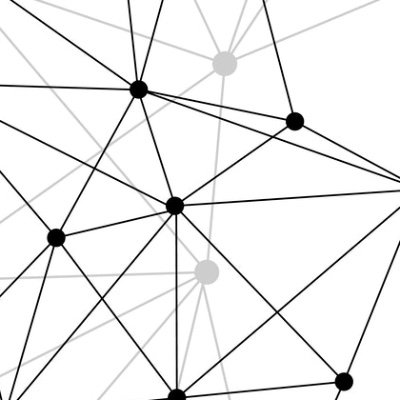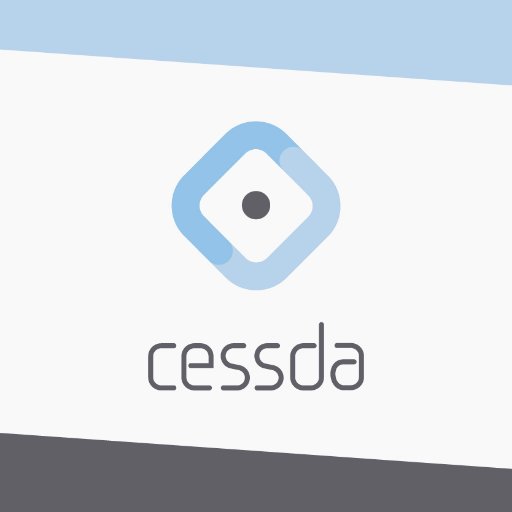
metadata-automation
@MetadataUplift
Followers
20
Following
14
Media
0
Statuses
27
A project exploring metadata uplift and quality through automation led by @supdey and @spuddybike. Funded by @ESRC and @DIRAC_HPC with support from @CLOSER_UK
London
Joined April 2021
Super pleased to announce that we are kicking off a project to explore ways to uplift and improve the quality of metadata in the social and population sciences using machine learning. The project website is at https://t.co/0hzuftRD1H and we'll be tweeting from here.
3
6
0
Congratulations to my PhD student Zeqiang Wang & @yuqiw_ for their work on #longitudinal semantic shifts getting accepted @emnlpmeeting Findings. Co-supervised w/ WeiWang, @nishanthsastry & @spuddybike @CLOSER_UK. @MetadataUplift
0
3
5
Pleased to be in Manchester for @NCRMUK #MethodsCon where Jon Johnson @spuddybike is presenting our @ESRC-funded #FutureDataServices MetacurateML @MetadataUplift project. @CLOSER_UK @ScotCen
0
3
8
🆕Standardised scales (SS) added to Discovery, our research tool for longitudinal population studies! This update will make it easier to determine if questions belong to a SS & identify where they are used across our studies & waves of data collection. https://t.co/vwNryROUID
0
7
5
Job Alert! We are looking for a PDRA in #NLP and #ML, as part of our @ESRC-funded #FutureDataServices grant, at @ComputingSurrey. The successful candidates will collaborate with @CLOSER_UK @ucl, @UKDataService and @ScotCen. Apply by: 22 July 2024 https://t.co/N7meyGP9bX
0
1
1
Excited to kick-off our #METACURATEML project, with @CLOSER_UK @ucl, @UKDataService & @ScotCen to generate #ML-driven #metadata and #data solutions which are #FAIR ready, using #GrowingupinScotland study as a pilot dataset. Grateful for funding from @ESRC #FutureDataService.
0
3
5
But if the advance from chatbots to ChatGPT is in automating the answers, can we automate the questions as well? Can we automate the prompt engineering? Excellent points on creativity, enquiry and why it ain’t intelligence https://t.co/fmFDPDv5Fq
0
0
1
Our #NLProc paper "Privacy Pitfalls of Online Service Terms and Conditions: a Hybrid Approach for Classification and Summarization" w/ Emilia Lukose @ComputingSurrey and @spuddybike @CLOSER_UK, UCL has been accepted @NllpWorkshop @emnlpmeeting! @MetadataUplift 🧵
2
5
6
Our final report of the @DiRAC_HPC funded Activity on 'Understanding the multiple dimensions of prediction of concepts in social and biomedical science questionnaires', jointly led by @spuddybike, is now out in https://t.co/7RkFZ7bplS
@MetadataUplift
0
4
5
@iassistdata @SupDe @ESRC @DiRAC_HPC We used @CLOSER_UK Discovery as our training data to develop an ML agnostic pipeline to explore different models and approaches.
0
0
2
Our first paper on metadata uplift using machine learning is out in @iassistdata
https://t.co/MtyEiZ71Gq led by @supde. Funded by @ESRC and @DiRAC_HPC.
2
2
2
Encouraging feedback from the DDI-L community on our @ESRC funded ML pipeline approach for data extraction from longitudinal questionnaires. See slides from the talk here: https://t.co/bdFVAWhGle
#eddi2021 @MetadataUplift
0
5
4
#JobFairy UCL have a range of permanent posts for RSEs. It’s a really great team (we work with them!). More info over at https://t.co/ELTEQqDIOj
0
1
1
I'm really glad folks are looking into this and grateful to @strwbilly for this reporting highlighting the negative impacts of #AIhype
https://t.co/Hz0EB3x7CB
1
23
72
DDI-CDI is a @DDIAlliance candidate standard that is aimed at allowing cross domain integration. The paper raises some useful ways in which standards can work together for machine actionable data management
Interested in metadata and #FAIRData? Check this out! A report that explores the challenges faced by #EOSC& discusses a number of use cases/examples of the role that DDI-CDI can play. @CODATANews @DDIAlliance @tietoarkisto @MariKleemola @gesis_org
0
0
0
Really useful review of deep learning text classification methods
0
1
0
We believe that using such rich sources of information as questionnaires provide, can give us the levels of accuracy that data collectors demand, and we hope this will help spur the development of standards based data collection tools and provide for better discovery.
0
0
0
The second is looking at auto-tagging questions and measurements to established vocabularies - we are using ELSST from @CESSDA_Data as our starting point.
1
0
0
The first is looking at ways of extracting provenance information from historic surveys as reusable structured metadata using @DDIAlliance standards. The ambition is that this will release this valuable information currently locked up in hundreds of thousand of PDFs in archives
1
0
0






